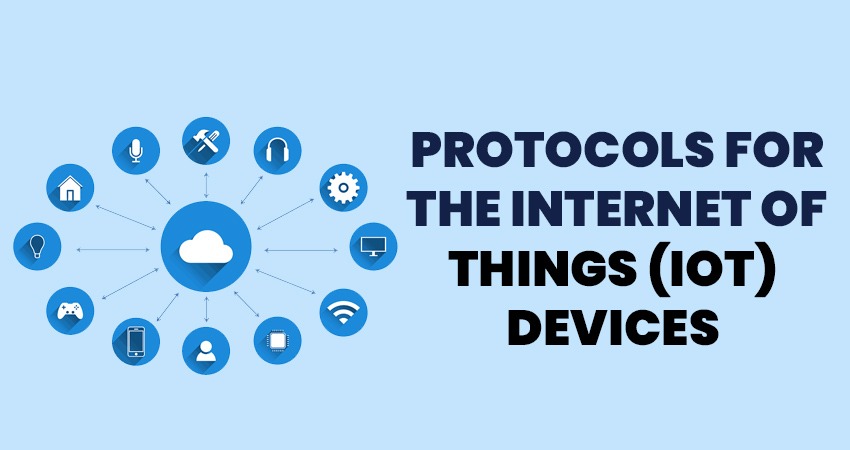User Ideas / Prospects

The advent of 5G networks is changing industries around the globe. The pace at which this revolution is happening doesn't spare electrical engineering. With quicker speed, lower latency, and greater connectivity, 5G will transform how electrical systems are designed, developed, and managed. It affects industries and individuals alike. Here, engineers are at the center of this revolution, solving new challenges and seizing unprecedented opportunities.
What Makes 5G Different?
5G is a fifth generation network. This is
significantly far superior than any predecessor. It operates nearly 100 times
faster than 4G. Latency or delay has come down to the order of just
milliseconds. Communication in real-time is what comes from it. More devices
connect simultaneously without a sense of congestion.
These features make 5G a network that
transcends the wireless mobile network. It is the base for smart cities,
autonomous cars, and the Internet of Things. Electrical Engineering, therefore,
contribute significantly to this innovation.
5G and Circuit Design
The high frequency of 5G signals requires
advanced circuit designs. Traditional circuits are not sufficient for these
frequencies. Electrical engineers must design high-speed circuits. They must
also ensure energy efficiency. These designs require precision and expertise.
Heat dissipation and electromagnetic
interference are challenges in 5G. Advanced materials, such as GaN, are used in
circuits to improve performance and durability. They are continuing to break
the records of electrical engineering.
Infrastructure
5G has the potential to form a very dense
network. It demands a lot of infrastructure. This is not feasible with
traditional cell towers. Small cells are necessary to address the gaps in the
network. Small cells include compact antennas installed on buildings, poles,
and even streetlights.
Electrical engineers design and deploy
these systems. They ensure smooth integration with existing infrastructure.
Power management is critical for these systems. Engineers develop innovative
power solutions for uninterrupted connectivity.
The Emergence of Smart Grids
5G networks enable smart grids. These are
advanced electrical grids with real-time data communication. Smart grids
monitor energy flow and optimize consumption. They can even predict outages and
respond instantly.
The grids will be designed by electrical
engineers. They design sensors and control systems. They also make it reliable
and scalable. With 5G, smart grids are more efficient and sustainable.
Impact on IoT Devices
5G accelerates the growth of IoT. IoT
devices, like smart thermostats and sensors, rely on constant communication. 5G
makes this possible with low latency and high bandwidth.
These devices' hardware gets designed by
electrical engineers. They have major concerns with miniaturization, energy
efficiency, and connectivity. Exponential in numbers will be the number of
devices as 5G unfolds. Solutions for engineers are to innovate in the future.
Automation and Robotics
5G networks support automation and
robotics. The connected robots can now be used in factories for the performance
of tasks in real-time. Autonomous vehicles use 5G for navigation and for
safety.
Control systems for such applications are
designed by electrical engineers. The systems have to be efficient and
accurate. It means that with 5G engineers can take automation to the next
level.
Challenges for Engineers
This is the case because the 5G
revolution is not without its fair share of challenges. Security threats are
something that has to be dealt with by engineers. While the networks expand, so
does the risk. Security engineers are required to design systems that will
safeguard data and devices.
Another is sustainability of the 5G
infrastructure: the latter requires energy. Designers have to develop work that
is energy efficient. The integration of renewable energy is the answer.
Last but not the least, there is a demand
for engineers with the skills. It is very important for engineers to remain
informed on the latest technologies and advances.
Chances in Electrical Engineering
The effect of 5G is bringing great
opportunities. Electrical engineers are much sought after in the industry.
Telecommunication, health care and manufacturing sectors have recruited
engineers for the 5G technology development Engineers also have the chance to
work in research and development section. They are coming up with future
technologies such as 6G and even beyond. In the case of young engineers, it is
an exciting period. Electrical engineering is dynamic in nature. Somebody has
to gain new knowledge and skills.
Remember, Engineer’s Heaven is the online community for passionate engineers which is undoubtedly one stop destination for all your queries. Here you will find all the resources you need to help you on your engineering endeavor. Featuring blogs, vidoes, questionnaires and tutorials to a forum and more, Engineer’s Heaven provides you with the information and resources you need to succeed in your chosen profession.
(Disclaimer: This statistics could be different in different part of World and Different timeline. this statistics has been generated based on data available till 2025 or relavant time span.)

Energy is the backbone of modern society. Every sector, from transportation to technology, relies on it. Yet, producing and storing energy efficiently is a constant challenge. This is where chemical engineering steps in. It bridges science and technology to create solutions for energy production and storage.
Energy production is complex. It entails converting raw
materials such as coal, natural gas, or biomass into usable energy. Chemical Engineers make sure this process is efficient and sustainable.
One major contribution lies in the development of cleaner
fuels. Traditional fuels such as coal emit harmful emissions. Chemical
engineers are working to reduce these emissions through innovative techniques.
They design systems that capture carbon dioxide before it enters the
atmosphere.
Chemical engineers are excellent in another area:
renewable energy. To enhance efficiency, wind and solar energy rely on advanced
materials, and chemical engineers develop these. For instance, they create a
better coating for the solar panels so that more sunlight is captured.
Hydrogen energy is also getting attention. Hydrogen is a
clean energy source, but its production can be difficult. Chemical engineers
develop processes to make hydrogen production more efficient. That includes
innovations in electrolysis and fuel cells.
The
Role in Energy Storage
Energy production is just one side of the coin. The other
side is storage. Renewable energy systems cannot work without proper storage.
Flow Batteries: Flow batteries are large-scale batteries,
primarily ideal for storing renewable energy. Chemical engineers design fluids
that store energy in these systems.
Another focus is thermal energy storage. It involves
storing heat from the sun or industrial processes. Chemical engineers develop
materials that retain this heat for long periods. These systems are very
important in balancing energy supply and demand.
Sustainability
and Environmental Impact
Chemical engineers are at the forefront of sustainable
energy solutions. They focus on reducing waste and minimizing environmental
impact.
Recycling is another input of chemical engineering.
Valuable materials in these batteries and panels are being reclaimed by
chemical engineers. Sustainability for energy systems follows this recycling
strategy.
Future
Prospects in Energy Engineering
Chemical engineering holds the key to the future of
energy. Each day sees a new emergence of technology. These technologies, made
practical, have been driven into reality by chemical engineers.
AI is the recent addition in the energy systems. The
chemical engineers optimize the process through AI. The efficiencies are
enhanced with reduced cost.
Another breakthrough is nanotechnology. This is working at
the atomic level with materials. Chemical engineers utilize nanotechnology in
developing improved catalysts. The catalysts speed up chemical reactions in the
generation of energy.
Fusion energy is on the horizon, too. It imitates the
generation of energy by the sun. Chemical engineers are striving to make this
energy a reality. It can generate unlimited clean energy in the future.
Why
Engineers Heaven is Your Best Resource
If you’re passionate about chemical engineering, visit the og. This website is a hub for engineers and aspiring professionals. It offers valuable resources for understanding energy systems and beyond.
Engineer’s Heavenprovides easy-to-read articles on cutting-edge technologies. It also offers practical tools for students and professionals. Whether you’re researching fuel cells or battery storage, this site has you covered. It also links you to the world community of engineers. Share your ideas with other engineers, learn from the best minds, and enjoy your life on the go with Engineers Heaven as more than just a resource.
(Disclaimer: This statistics could be different in
different part of World and Different timeline. this statistics has been
generated based on data available till 2025 or relavant time span.)

There has never been such a high demand
for efficient, durable, andlightweight materials in aerospace and automotive
industries. Industries are pushing the boundaries of materials engineering to
meet performance, safety, and environmental standards. The result? Advanced
materials that are stronger, lighter, and more versatile than ever before. For
more details about advanced engineering, visit Engineers Heaven.
Why Do
Lightweight Materials Matter?
Weight saving is important for both
aerospace and automotive industries. Vehicles that are lighter in weight
require less fuel, which saves them from increased emission. An aircraft with
components lighter in weight would have a larger payload and greater distances
to be traveled.
However, safety necessitates that these
materials be sufficiently strong. This balance between strength and weight is
the high pressure driving innovation in materials engineering.
New Lightweight
Materials
●
Carbon Fiber
Composites
Carbon fiber composites are changing both
markets. They are extremely strong and lightweight. Five times stronger than
steel, they weigh much less.
Carbon fiber is used widely in aerospace
applications, such as wings, fuselage, and interiors. In automotive
applications, it is suitable for sports cars and electric vehicles. Its cost is
too high, but its benefits are worth the cost.
●
Aluminum Alloys
Aluminum alloys are famous for their
strength-to-weight ratio. Aluminum alloys are widely used in the frames of
automobiles and aircraft structures.
It is also corrosion-resistant and
recyclable material, hence, sustainable. Recent advancements have further
improved its tensile strength to make it more appropriate for high-performance
applications.
●
Titanium Alloys
Titanium alloys are lighter than steel
and equally strong. Offering exceptional resistance to heat and corrosion, this
makes them perfect for aerospace components like jet engines and landing gear.
While costly, scientists are trying to
reduce the cost of production. This will increase its application in automotive
manufacturing in the near future.
●
High-Performance
Plastics
High-performance plastics, including PEEK
and PPS, are becoming increasingly popular. These materials are lightweight,
strong, and resistant to extreme temperatures.
They are used in everything from fuel
systems to electrical components. In aerospace, they reduce weight without
compromising safety.
●
Metal Matrix
Composites (MMCs)
Metal matrix composites are a combination
of metals with ceramic or other reinforcements. These materials provide better
strength and thermal properties.
MMCs are highly useful in engines and
braking systems. They have high stress and temperature resistance, making them
reliable.
Manufacturing
Techniques Driving Innovation
Advanced materials development is not
just about the materials themselves. Manufacturing techniques play a
significant role.
Additive
Manufacturing (3D Printing)
Additive manufacturing is useful for
precise designs and less material waste. It is suitable for the production of
complex components made from lightweight materials.
Aerospace companies use 3D printing for
engine parts and structural components. Automakers are using it for custom and
low-volume production.
Advanced Forging
and Casting
New forging and casting techniques
enhance material properties. The methods increase strength, reduce defects, and
increase efficiency.
Titanium and aluminum components are
usually produced with these advanced methods.
Nanotechnology
Nanotechnology: Transforming Materials on
the Molecular Scale
Materials are improved in terms of
strength, weight, and durability.
Carbon nanotubes and graphene are only
two amongst this technology that is often used in composites for applications
in aeronautics and automotive areas.
Challenges and
Future Directions
Achievements notwithstanding, there
remain plenty of challenges. One of the main challenges is the cost,
particularly with a material like carbon fiber and titanium. Innovation is
necessary to reduce the cost of producing these materials.
Sustainability is the other area.
Recycling lightweight material is challenging, but it needs to be done because
waste should be minimized. Work is being done on making them greener.
Future developments would likely be in
hybrid materials. They take the best from two different materials. Hybrid
composites could thus be a merger of carbon fiber's strength with metals'
flexibility.
Materials engineering is an
ever-evolving field. Staying updated with the latest advancements is crucial
for engineers, researchers, and enthusiasts.
For more resources, articles, and expert
insights, visit Engineer’s Heaven It is your one-stop platform for everything
engineering. Whether you are a student, professional, or innovator, Engineers
Heaven has something for you. Join a community that values progress,
innovation, and learning.
(Disclaimer: This statistics could be different in different part of World and Different timeline. this statistics has been generated based on data available till 2025 or relavant time span.)

The
Internet of Things (IoT) has transformed the digital world. From smart homes to
connected vehicles, IoT devices are everywhere. These devices make life
convenient, but they also introduce risks. Security is one of the biggest
challenges in IoT. Without proper protection, these devices become easy targets
for hackers. This blog will explore secure communication protocols that protect
IoT systems.
Visit
Engineers Heaven, the ultimate website for engineering solutions and
innovations, for professional advice and resources regarding Security Engineering
The Significance
of IoT Security
IoT
devices are small in size but high in power. They are collecting, sharing, and
processing data all the time. The interconnectivity also leaves them open to
vulnerabilities. A hacker may identify the weak links of the system. Breaches
could result in data theft, device malfunction, or loss of system control.
This
is where secure communication protocols come in. They ensure safe data
transmission between devices. Let's see some protocols that support IoT
security.
Top Secure
Communication Protocols for IoT
1. Transport
Layer Security (TLS)
Transport
layer security is perhaps the most utilized protocol. It keeps data encrypted
during transmission, thereby ensuring it is unintelligible to observers.
Many
websites and apps employ TLS on their sites.
In
IoT, TLS protects data exchange between devices and servers; encryption is done
using a combination of public and private keys that do not allow unauthorized
access to sensitive information.
2. Datagram
Transport Layer Security (DTLS)
DTLS
can be considered as an extension to TLS. It functions with the user datagram
protocol. In this way, it is faster and ideal for devices with limited
resources in IoT.
DTLS
guarantees security communication without sacrificing speed. It is helpful in
devices such as sensors and smart meters.
3. Message
Queuing Telemetry Transport (MQTT)
The
MQTT is a light protocol. It is developed for devices of low bandwidth. Despite
its simplicity, MQTT offers some built-in security features .
By
applying TLS, MQTT guarantees that communication will be over an encrypted
channel. Authentication also uses methods that verify devices so that no
unauthorized entity has access to the system.
4. Constrained
Application Protocol (CoAP)
CoAP
is another lightweight protocol. It is optimized for devices with limited power
and memory. CoAP works well in resource-constrained environments.
CoAP
integrates DTLS for secure communication. This ensures that even small IoT
devices remain protected.
5. Internet
Protocol Security (IPsec)
IPsec
is a robust protocol suite. It works at the network layer to secure data. IPsec
encrypts and authenticates all IP packets during transmission.
IoT
networks benefit from IPsec's end-to-end security. It ensures safe
communication between devices, servers, and users.
Key Features of
Secure IoT Protocols
●
Encryption: Data becomes impossible to read for the unauthorized.
●
Authentication: Verification of the identity of the device and user.
●
Integrity: Data will not be modified during the transit.
●
Low Resource Consumption: Suitable for devices with power and memory.
Focusing
on these features, the security of IoT systems can be strong.
Challenges in
Securing IoT Devices
●
Limited Resources: Most of the IoT devices have low processing power
and memory. This hinders the development of complex security measures.
●
Diverse Ecosystem: IoT is a broad field of devices. It is very
challenging to maintain compatibility between the devices.
●
Scalability: As the number of devices increases, it is hard to
maintain security.
●
Cost: High-level security measures may be costly. This is an issue for
the manufacturers and customers.
Best Practices
for IoT Security
Use
Secure Protocols: Always implement protocols like TLS, DTLS, or MQTT.
●
Regular Updates: Keep device firmware and software updated.
●
Authentication: Use strong passwords and multi-factor authentication.
●
Monitor Traffic: Analyze data traffic to detect unusual activity.
●
Educate Users: Make users aware of basic security practices.
These
steps ensure long-term security for IoT systems.
Role of Engineers
in IoT Security
Engineers
are the first-line developers of IoT. They design devices, networks, and
systems that need to be secure. To do so, they need to know protocols and
security practices.
For
engineers who want to increase their knowledge, Engineers Heaven is a great
place to visit. The platform gives expert insights, tools, and tutorials. Keep
updated with the latest in engineering and technology trends.
Conclusion
Secure
communication is the future of IoT. Protocols like TLS, DTLS, MQTT, and CoAP
are important. They safeguard data and enable devices to work. Still, there are
resource constraints and scalability issues.
Security
has to be the prime focus of the engineer and developer at every stage. Best
practices followed and robust protocols can help them create safer IoT systems.
For
more professional resources, visit Engineer’s Heaven. Empower your engineering
journey with reliable tools and insights. Secure your IoT systems today and
build a safer tomorrow.
(Disclaimer: This statistics could be different in different part of World and Different timeline. this statistics has been generated based on data available till 2025 or relavant time span.)

Mining is one of the industries that has
significantly changed in the past few years. Automation and robotics are some
of the significant changes. All these have dramatically changed the ways in
which we explore, extract, and process minerals. The Mining and Geological Engineering are not as it was; it involves much more high technology.
In this blog, we are going to discuss how
automation and robotics are revolutionizing mining. We are going to look at how
these advancements contribute to safety, efficiency, and sustainability. For
more topics related to engineering, visit Engineers Heaven.
Role of
Automation in Mining
Automation has revolutionized mining,
changing traditional ways of doing things. Many things that were done manually
are now carried out by machines. Drilling, loading, and hauling are performed
with great accuracy by automated systems. It means less human error and more
efficiency.
The foremost advantage of automation is
safety. Mining is a dangerous industry. Workers are exposed to cave-ins, gas
leaks, and equipment malfunctions. Automated systems reduce the human presence
in dangerous areas. This reduces accidents and saves human lives.
Automation also improves productivity.
Machines work faster and longer than human beings. They do not get tired like
humans do, and they can work in harsh conditions. It means greater output and
reduced operational costs.
Robotics in
Mining Operations
Robotics is another game-changer in the
mining sector. Robots can perform complex tasks with unmatched accuracy. From
exploration to mineral extraction, robotics has applications across the value
chain.
Robotic drills, for example, can
precisely target mineral deposits. This reduces wastage and maximizes resource
utilization. Robots are also used for underground mapping. They provide
detailed data about geological structures. This helps engineers plan operations
more effectively.
Autonomous vehicles are another
innovation. Self-driving trucks deliver materials within mines with no human
input. They carry various sensors and cameras to help navigate. They are not
only efficient but also friendly to the environment.
Advantages of
Automation and Robotics in Mining
1. Reduced Risk
Being a mining job, it's one of the
hazardous professions. Automation and robotics eliminate the workers from
dangerous sites. They replace the jobs that many see as highly risky, thus
protecting human life.
2. Increased Efficiency
Machines work faster and with more
precision than humans. It optimizes the process, decreases delays, and
increases productivity.
3. Cost savings
The technology investment is a one-time
big investment, which pays off later. Automated systems cut down labor cost and
minimize the inefficiency of operational processes.
4. Environmental Advantage
Modern machines are designed in such a
way that they can minimize the damage to the environment. Robots and automated
systems cut down energy consumption and waste production.
Difficulties in
Implementation of Automation and Robotics
Despite the advantages that automation
and robotics bring to the mining industry, there are challenges with its
adoption. The cost of advanced technology is a major limitation. Many firms are
reluctant to spend money on pricey equipment.
There is also a need for skilled workers.
The knowledge required to run and maintain an automated system requires
specific expertise. Training workers on new technologies will be necessary.
There are regulatory constraints too.
Mine owners need to abide by norms on safety and environment. Innovation of new
technologies always goes alongside strict rules.
The Future
Mining seems optimistic for the future
too. Technology could further facilitate accessibility to automation and
robotics. Its significant roles can be attributed to artificial intelligence,
and machine learning will make such systems learn to change with experience
over time.
Sustainability will also drive
innovation. The trend will be more towards eco-friendly practices. Robots and
automated systems will minimize carbon footprints from the industry.
Development Collaboration between these
technology providers and mining companies is going to be critical. Partnerships
will accelerate the adoption of advanced solutions. This will therefore lead to
a safer, more efficient, and sustainable mining industry.
Read More at Engineer’s Heaven, To shape
the future of mining, automation and robotics provide some of the industry's
biggest solutions. It's about improving safety, making tools more effective,
and boosting productivity.
